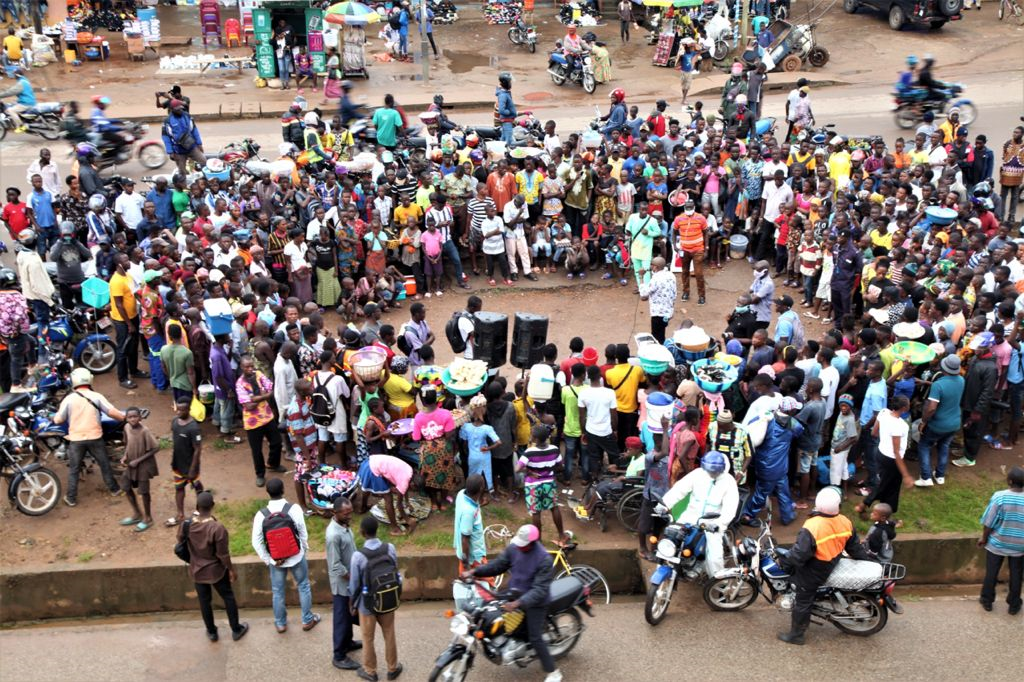By Patricia Conteh
FREETOWN, Sep. 6 (232News) – The National Council for Civic Education and Development (NaCCED), has engaged some 200 youths from across six (6) districts (Kambia, Falaba, Pujehun, Kono, Tonkolili and Kenema) over the Month of August. The engagement is part of the implementation of a United Nations Development Programme (UNDP) support to improving civic knowledge of youth for better inclusion in decision making processes.
As part of the process, NaCCED conducted Focus Group Discussions (FGDs) with youth representatives from all chiefdoms in the beneficiary districts in a bid to evaluate their knowledge on governance, civic rights and responsibilities, teenage pregnancy, women’s rights issues, among others. The high point of the engagements was the youth-service provider dialogue sessions which sought to understand the relationship between youth and traditional leaders, local council authorities and other government functionaries. The engagement also employed Open Space Edutainment sessions which drew large crowds who benefitted from entertainment and civic knowledge transfers.
The focus of the initiative is to upscale the knowledge of the young men and women within the 17- 35 age bracket, to address deep-rooted norms and gaps in their civic roles and responsibilities that could contribute to better participation in decision-making processes in politics, gender issues, and women’s rights amongst others.
Social researches have revealed that political, social, and civil issues are fundamental components of any democratic society, and that civically engaged youth have been a force for change throughout history. However, much of the marginalization of young people in Sierra Leone derive from their lack of civic knowledge and engagement.
According to the Chairman for NaCCED, Mr. Kalilu I. Totangi, such engagements are vital in changing the narrative of youth exclusion. He described the current situation of hopelessness amongst youth as one that has led to a sense of angst and despair, especially in urban communities. “Many of the youth have taken to ‘okada’ and ‘kekeh’ riding to sustain themselves and to take care of their families. Yet many others pass their time away at ‘Ataya Bases’ due to lack of meaningful engagements. Some others are also involved in substance abuse and petty crimes, a situation which has often led to violent confrontations between some sectors of the youth and the Sierra Leone Police (SLP),” he said.
Both NaCCED and UNDP are of the view that youth exclusion means the requisite information that ensure their meaningful contribution does not filter through to them. Many young people seem to battle with rumors and misconceptions on what their civic life and contributions should be. “This is a serious challenge for a post-war country focused on rebuilding its peace”, the NaCCED Chairman said. Both organizations are optimistic that this intervention will provide youth and young people (including young women & Persons with Disability) knowledge and understanding of the policies, channels of communication and participation, civic responsibilities and women’s rights. When used well, such information will improve how youth interact with policy makers and governance systems so that their interests are included in mainstream development agenda.
Some of the key findings from the various engagements revealed that there is minimum involvement amongst youth in decision making processes in their districts. The participants also acknowledged that they are only informed about issues or undertakings giving them the feeling that “they are there to be seen and comply and not to be heard”. Another finding revealed that political affiliation amongst them affects their relationship with each other and their ability to collectively address developmental issues at community levels. They blamed the lack of opportunities such as employment and other skills training amongst others, which they say leads to issues like increase in crime, teenage pregnancy etc.
Some psychologists have argued that the possibility of a country’s future ending up in the hands of a citizenship that lack understanding of the benefits and duties of citizens is the most serious modern threat to a nation. The right of young people to participate and engage meaningfully in society is a fundamental right, as enshrined in Article 12 of the United Nations Convention on the Rights of the Child (UNCRC), which has been ratified by Sierra Leone.
This rationale is that the intervention is built for communities to own, so even if there are no other actions from development partners, the youths will move on to expand on their knowledge received to others and the wider community.

